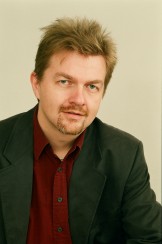 “What can I do, it’s in my genes!” In recent years, this has become a standard explanation for many of the health problems we have to face in our lives. Indeed, there are few human diseases without scientific studies trying to pinpoint ‘genetical causes’ as the root. Consequently, there are efforts to find genetic roots of mental problems as well. But 150 years after Mendel (the ‘father of modern genetics’) had outlined his ‘Laws of Inheritance’, we have still to see significant therapies that could wipe out major human burdens like cancer, addictions, diabetes or violence by purely genetical means. This is not to say that genetic science doesn’t have potential; but all the other influential factors should not be forgotten.
“What can I do, it’s in my genes!” In recent years, this has become a standard explanation for many of the health problems we have to face in our lives. Indeed, there are few human diseases without scientific studies trying to pinpoint ‘genetical causes’ as the root. Consequently, there are efforts to find genetic roots of mental problems as well. But 150 years after Mendel (the ‘father of modern genetics’) had outlined his ‘Laws of Inheritance’, we have still to see significant therapies that could wipe out major human burdens like cancer, addictions, diabetes or violence by purely genetical means. This is not to say that genetic science doesn’t have potential; but all the other influential factors should not be forgotten.
One of the weirdest aspects of the notion that all things human are genetically predetermined is that it takes everyone completely out of the context of their environment. We might as well not put personal or societal energies into trying to improve ourselves or others, because it’s inevitable and unchangeable anyway… But in fact there is just a very small number of very rare diseases that are truly genetically determined. Most complex conditions like ADHD, schizophrenia, a tendency to violence or addiction might have a predisposition that has a genetic component, but a predisposition is not the same as a predetermination. Genes just seem to give us different ways of responding to our environment. Some of the childhood influences and the method of child rearing in turn also affect gene expression; they can actually turn on or off various genes to put us on a different developmental track which may suit the kind of world we’ve got to deal with.
For example, a study done in Montreal with suicide victims looked at autopsies of the brains of these people and it turned out that if a suicide victim had been abused as a child, the abuse actually caused a genetic change in the brain that was absent in the brains of people who had not been abused. That’s an epigenetic effect: an environmental impact that is capable to either activate or deactivate certain genes.
So, in adaptation to the famous quote of Shakespeare, “There are more things in heaven and earth than are dreamt of in our scientific world.” And there are more things we can do to change ourselves than we might imagine.
(This short article is part of a weekly series dealing with psychological expat problems and general mental health issues and was published in various newspapers and magazines in Thailand, 2011)


